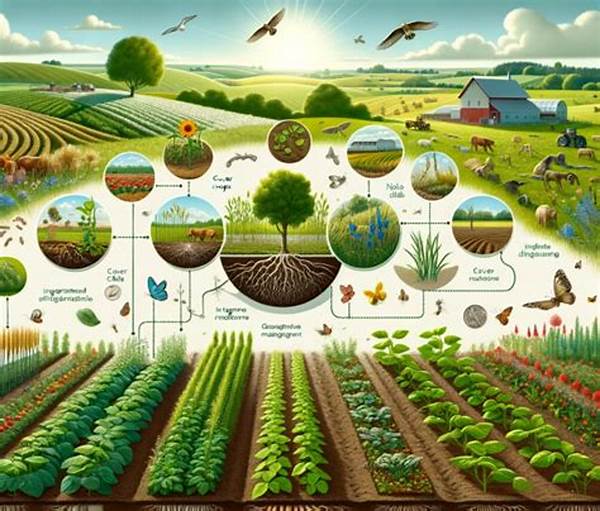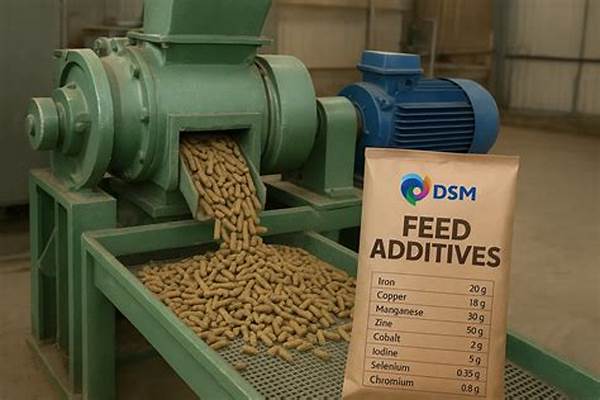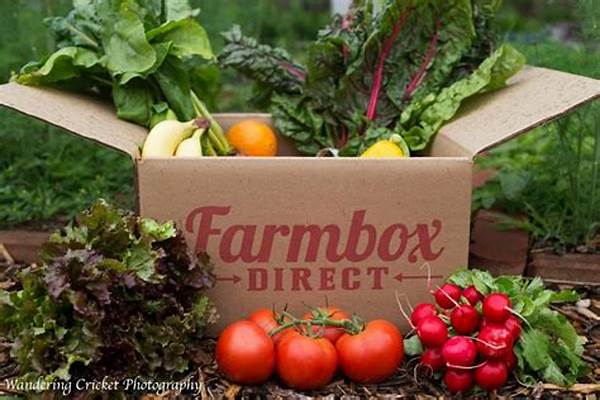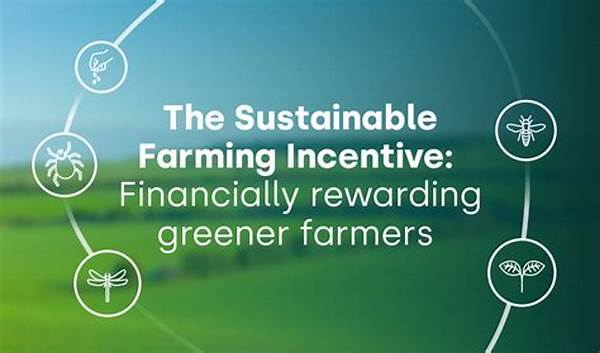In the face of mounting environmental challenges and a growing global population, it is imperative to embrace agricultural practices that are both sustainable and resilient. Organic farming systems offer a beacon of hope, promising not only healthier soils and ecosystems but also enhanced crop resilience. Adopting organic farming systems isn’t just an option—it’s a necessity.
Read Now : Organic Agriculture And Csa Partnerships
The Importance of Crop Resilience in Organic Farming
The concept of crop resilience—the ability of crops to withstand and recover from various stressors—is crucial in organic farming systems. Unlike conventional farming, which relies heavily on synthetic inputs, organic farming leverages natural processes to enhance crop vitality and resilience. By focusing on soil health, biodiversity, and ecosystem balance, organic farming systems equip crops to better resist pests, diseases, and environmental fluctuations. As climate change continues to disrupt traditional farming systems, the resilience offered by organic approaches becomes a vital component in ensuring food security. Investing in crop resilience in organic farming systems isn’t just about sustainability; it’s about securing a stable agricultural future. By enhancing soil fertility and fostering a balanced ecosystem, organic farming empowers crops to thrive amidst adversity, ensuring robust harvests even in challenging conditions.
Strategies to Enhance Crop Resilience
1. Soil Health Management: Enhancing soil health is fundamental for crop resilience in organic farming systems. Organic matter, cover crops, and compost are vital components that fortify the soil structure and boost its ability to retain moisture and nutrients.
2. Biodiversity Promotion: Diverse plant and animal species within farming environments bolster crop resilience. A rich tapestry of biodiversity acts as a buffer against pests and diseases, creating a self-regulating system.
3. Integrated Pest Management (IPM): IPM is essential in organic systems, combining biological control, habitat manipulation, and resistant varieties to naturally manage pest populations, enhancing the overall resilience of crops.
4. Water Management Practices: Efficient water usage, through drip irrigation and rainwater harvesting, ensures that crops receive adequate moisture, safeguarding them from drought-related stress.
5. Farmer Education and Training: Empowering farmers with the knowledge and skills to implement organic practices effectively is paramount. Education directly contributes to the adaptation and success of crop resilience in organic systems.
Read Now : Eco-friendly Produce Delivery Service
Technological Advancements Supporting Resilience
In the evolving landscape of agriculture, technology plays a crucial role in supporting crop resilience in organic farming systems. Innovative practices, such as precision agriculture, allow farmers to monitor soil and crop health with unparalleled accuracy. This technological synergy enhances the ability of organic farming systems to adapt and thrive under varying conditions. By leveraging modern tools, farmers can precisely tailor their approaches to the needs of their crops, thus ensuring resilience. Additionally, data-driven insights equip organic farmers with the knowledge to make informed decisions that further bolster crop resilience. Integrating technology with organic practices ensures a comprehensive and resilient approach to farming, ensuring that crops not only survive but flourish.
Overcoming Challenges for Crop Resilience
While the benefits of crop resilience in organic farming systems are clear, overcoming the associated challenges requires strategic planning and commitment. One of the primary hurdles is the initial transition period, where yields may temporarily dip as the ecosystem adjusts. However, this period is an investment in a more resilient future. Building a robust support network for farmers, including access to resources and training, is crucial. Governments and organizations must collaborate to provide financial incentives to ease this transition, promoting widespread adoption of organic practices. By fostering a culture of resilience and adaptation, society can ensure the long-term viability and success of organic farming systems.
The Role of Community in Strengthening Resilience
Building crop resilience in organic farming systems is a collective effort that extends beyond individual farms to encompass entire communities. Local collaboration and shared knowledge among farmers foster an environment of sustainable practices and resilience. Community-supported agriculture (CSA) programs are a testament to the power of collective action, thriving on local support that promotes organic and resilient farming practices. Additionally, farmer cooperatives can drive innovation and resilience by pooling resources and exchanging best practices. Community engagement not only strengthens crop resilience but also builds stronger, more connected societies. The communal aspect of organic farming enhances resilience, creating a network of informed and empowered individuals who can collectively rise to the challenges of modern agriculture.
The Path Forward for Resilient Farming
The journey towards enhanced crop resilience in organic farming systems requires a multifaceted approach. Embracing sustainable farming methods while harnessing modern technology paves the way for a resilient agricultural future. Encouraging policies and investment in organic practices will foster the development of a robust agricultural ecosystem. Moreover, adopting a holistic understanding of farming that integrates crop resilience principles is vital. Ultimately, crop resilience in organic farming systems isn’t just an agricultural goal—it’s a societal imperative for a sustainable future. By prioritizing resilient practices today, we secure a bountiful tomorrow, ensuring that generations to come will inherit a planet rich in resources and opportunity.



